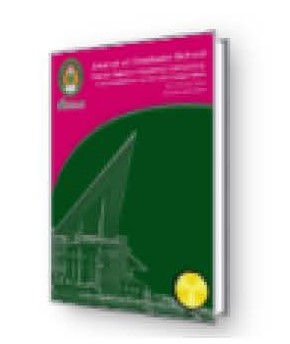COGNITIVE READING STRATEGIES AND EFL UNDERGRADUATE LEARNERS
คำสำคัญ:
cognitive reading strategy, EFL undergraduate learnersบทคัดย่อ
The objective of the present study was to investigate the cognitive reading strategies used by EFL undergraduate students majoring in English of Sakon Nakhon Rajabhat University. The participants of the study were 135 English major students in the Faculty of Education, Sakon Nakhon Rajabhat University in academic Year 2014. None of them have been in English speaking country. They learn English only in schools and the university. The survey of reading strategies (SORS), reading comprehension test, and interview were designed as triangulation to be employed as the research instruments. All of the participants were asked to respond the questionnaire and were taken the reading comprehension test for collecting quantitative data. Moreover, nine students were randomly selected to participate in the reading comprehension test and interview for qualitative data. This group of students were categorized according to their raw scores from the previous reading course as high, middle, and low proficiency and three of them were selected. The results revealed that among all participants, the reading strategies which were mostly employed in reading comprehension were pre-reading strategies: read the first line of every paragraph to understand what the text is about and read the title and imagine what the text might be about (= 4.11). Additionally, cognitive reading strategies employed by students among first year to third year students were different with the statistical significant at level of .05.
ดาวน์โหลด
รูปแบบการอ้างอิง
ฉบับ
ประเภทบทความ
สัญญาอนุญาต
บทความทุกบทความที่ตีพิมพ์ในวารสารบัณฑิตศึกษา มหาวิทยาลัยราชภัฏสกลนคร ถือว่าเป็นลิขสิทธิ์ของบัณฑิตวิทยาลัย มหาวิทยาลัยราชภัฏสกลนคร





